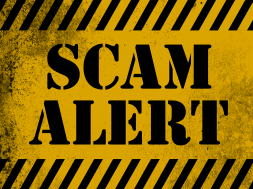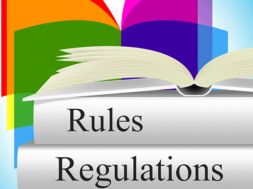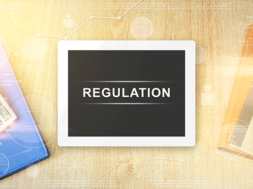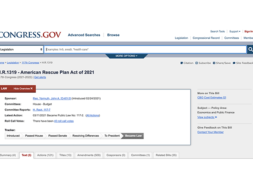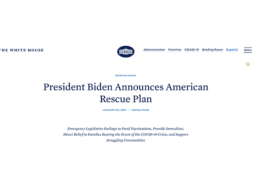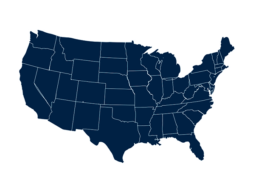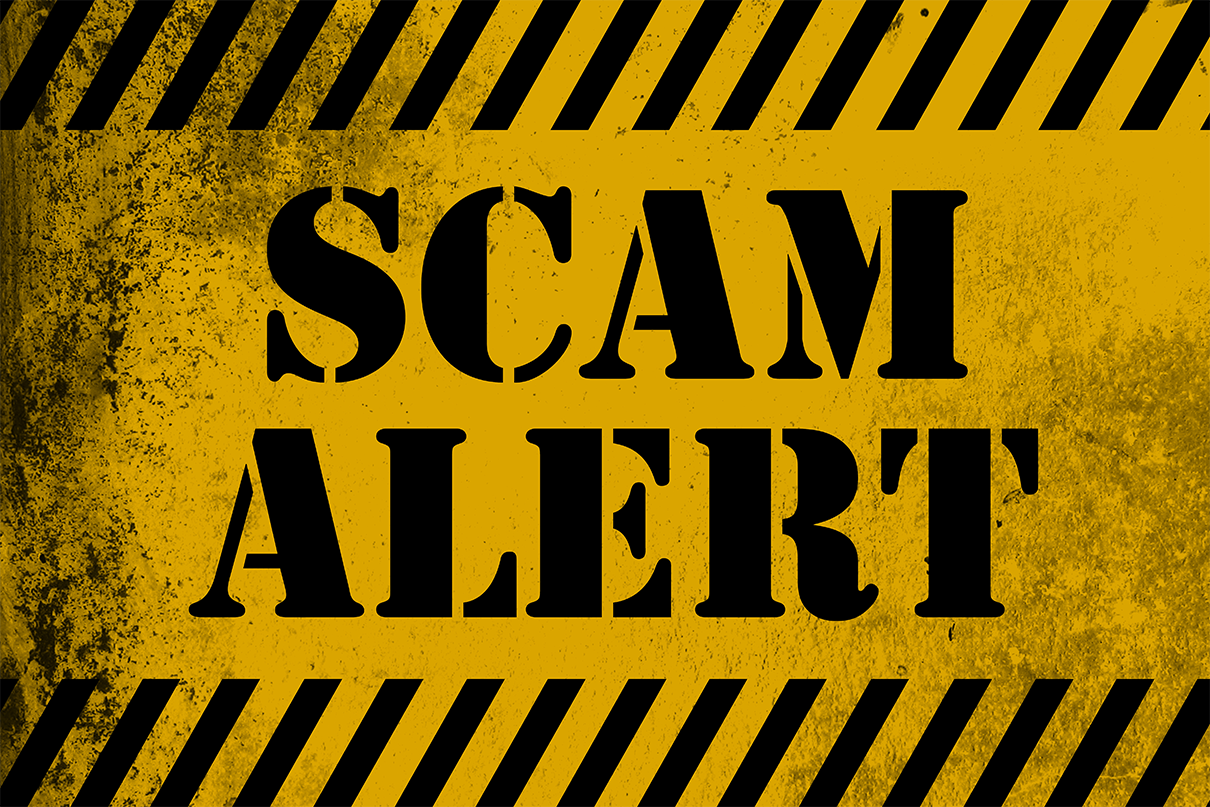
Class Action Student Loan Scams – a New Take on and Old Scam
By Michelle Donovan, Partner, Duane Morris, LLP
Have you been seeing advertisements and websites offering to file a class action lawsuit against your school? Are you concerned that your school is about to be sued? Think again. Chances are this is another student loan scam using bait and switch tactics to target your students and alumni, charging them exorbitant fees for “student loan services” that are available for free through the Department of Education.
These are not the class action lawsuits you are looking for
Advertisements have been popping up all over social medial lately offering legal services in connection with class action lawsuits against for-profit schools. Examples of such ads include the following claims:
- “Have you been scammed by a for-profit school? Know your rights, and enforce them. Class action lawsuit are available.”
- “[School Name] Class Action. Submit your information to be included in the Class Action against [School Name].”
There is no class action lawsuit. This is a new iteration of the well-known Obama student loan forgiveness scam and it has been quite effective for two reasons:
1. In the current legal landscape where class actions against schools are all too common, students readily buy into the premise that their school has been sued and want the benefit of such suits; and
2. Schools often take no action against such sites under the mistaken belief that it is a protected free speech website that cannot be removed.
This article will describe how these scams attract students using fraudulent bait and switch tactics, what tools are available to schools to get the websites removed, and how to proactively protect your students from these scams.
A scam by any other name …
Everyone is familiar with the classic “Obama Loan Forgiveness” student loan scams. These scams claim that students from a borrower’s school have already had their loans completely forgiven under the new Obama loan forgiveness program. Of course no such program is available. Instead, borrowers are charged large upfront fees to enroll in income-based repayment plans that are available for free from the Department of Education. Such upfront fees are illegal under federal law. Additionally, in many cases the scammers take no action at all, leaving students in even more debt and in some cases defaulting on student loans.
Loan scammers typically use Facebook as their primary tool to target student loan borrowers. However, Facebook amended its advertising policies to specifically prohibit misleading or deceptive student loan services related to student loan consolidation, forgiveness, or refinancing.1 This restricts how the loan scammers can advertise on Facebook and likely led to the new class action student loan scam.
The “class action” student loan scam targets student loan borrowers under the false pretense of determining their eligibility to participate in a class action lawsuit.
One website, Graduate Rights Watch for example, promises students “just compensation for being lied to and scammed,” and “let our experience and resources guide in your class action lawsuit search.” It claims that “class action lawsuits are available,” and invites students to “fill out our form to get started with immediate case advice.” Yet when students fill out the form or call the number on the website, they are not connected to a law firm or anyone else providing assistance with a class action lawsuit. Instead, the student is connected to an enrollment counselor offering student loan assistance services, which may include loan consolidation, income based repayment plans or complete loan dismissal packages for a fee of $700 or more.
Here are a few class action scam websites that we have identified:
- Legal Aid Advisors: http://legalaidadvisers.com/
- Student Rights Watch: http://studentrightswatch.com
- Graduate Rights Watch: http://graduaterightswatch.net
- National Student Loan Defense Group: http://nsldg.com/
Once you have seen one or two of these class action scam sites, it becomes easy to distinguish the scams from any legitimate site offering legal services. Most telling is that the online lead form always asks whether the consumer has any outstanding student loans. Further, a quick call to the number on the website will verify whether or not the call is routed to a “student loan assistance” company.
The scammers continue to use Facebook to target borrowers. However, there are no prohibitions in the Facebook ad policies against advertisements for legal services. Additionally, it can be difficult to get these ads and postings removed because on the surface they appear to be legitimate advertisements for legal services. Because of these issues, we have to look to other takedown tools to remove ads and websites that target our school clients.
Takedown tools
Peaking behind the curtain
In almost every case, the owners of the loan scam websites mask their identity using a proxy registration service. While it is still possible to contact the owner by sending an email through the proxy service, this correspondence almost always goes unanswered. However, once the owners’ identity is released, they are more likely to respond to a legal cease and desist letter and takedown demands. Fortunately, the proxy registration services have a complaint process that will allow you access to this information. We have found the trademark and copyright complaint process to be most effective. The websites that target students at a specific school contain trademarked name and logo of the school and may use images copied from the official school website or social media pages. Using the trademark or copyright complaint process, we can obtain the name and contact information for the owner of the scam websites from the proxy registration services, including a name, physical address, email address, phone number and in some cases an IP address. This allows us to reach out to the scammers directly with a cease and desist letter and takedown demand.
Most proxy services will forward complaints to the registered owner before releasing their information, and in some cases this will be enough to prompt the scammer to take action to remove the offending web page.
Each proxy service has their own preferred methods of receiving complaints. Most involve sending an email to a designated email address setting forth the grounds for the complaint. However, some require you to submit your complaint through their designated online forms.
Breakdown, takedown, you’re busted
If a particular advertisement or website contains any images owned by a school, we may be able to get the advertisement or website removed using the takedown procedure provided under the Digital Millennium Copyright Act (“DMCA”). This involves sending a DMCA takedown notice to the service provider that is hosting the content, which may be Facebook or other social media website, or the hosting company that is hosting the scam website. DMCA complaints are quick and easy. However, takedown notices have very specific legal requirements, which must be met in order to be valid. This includes the following:
(i) A physical or electronic signature of a person authorized to act on behalf of the owner of an exclusive right that is allegedly infringed.
(ii) Identification of the copyrighted work claimed to have been infringed, or, if multiple copyrighted works at a single online site are covered by a single notification, a representative list of such works at that site.
(iii) Identification of the material that is claimed to be infringing or to be the subject of infringing activity and that is to be removed or access to which is to be disabled, and information reasonably sufficient to permit the service provider to locate the material.
(iv) Information reasonably sufficient to permit the service provider to contact the complaining party, such as an address, telephone number, and, if available, an electronic mail address at which the complaining party may be contacted.
(v) A statement that the complaining party has a good faith belief that use of the material in the manner complained of is not authorized by the copyright owner, its agent, or the law.
(vi) A statement that the information in the notification is accurate, and under penalty of perjury, that the complaining party is authorized to act on behalf of the owner of an exclusive right that is allegedly infringed.
Some service providers require the notice to be submitted using an online form and some will require you to use the exact wording provided under their DMCA policy. It is best to check the applicable website terms for the information that is required by each service provider because non-compliant DMCA takedown notices will be rejected. While this process is often the quickest means of removing content, it is not a complete solution. Scammers can get around these takedowns by reposting the website using a new hosting company or simply republishing the website once the images have been removed. Therefore, schools need to remain vigilant and schedule periodic checks to make sure the website is not reactivated.
What’s behind door number two?
After investigating several of these class action scam websites, it appears that in most cases the scammers are not the same people who are offering the student loan services. Instead, the scammers act as a lead affiliate and are selling the leads to third party agency or buyer. This buyer is still liable for the action of the affiliates running the class action loan scam.
Identifying the buyer of the leads and sending them a legal cease and desist letter will generally result in the immediate and permanent removal of your school from the offending website.
This requires additional time and efforts but has proven to be the most complete solution to removing these class action scams.
Be proactive
These scammers are actively targeting students and can use the Facebook advertising tools to identify current students and alumni from your school, which allows them to place school specific class action scam ads in their feed. Don’t wait for these students to bring this issue to you after they have already been the victim of these scams. Educate your students about how these scams work and remind them that they should never pay someone to help them with their student loan. This can be done in the form of an email notification, a dedicated web page, and/or periodic postings on the school social media accounts. Information you may want to include are links to the Department of Education and Consumer Finance Protection Bureau websites warning borrowers about the dangers of these student loan scams:
- https://blog.ed.gov/2014/07/beware-of-student-loan-debt-relief-offers-and-credit-repair-deals/
- https://www.consumerfinance.gov/about-us/blog/consumer-advisory-student-loan-debt-relief-companies-may-cost-you-thousands-of-dollars-and-drive-you-further-into-debt/
This is also a good opportunity to remind students that the school and the Department of Education will provide assistance with repayment options for free. Be sure to include relevant contact information for the school and the Department of Education.
You can also file complaints with the relevant government agencies who have been prosecuting these loan scammers, include the state Attorneys General, the Federal Trade Commission (FTC), and the Consumer Financial Protection Bureau (CFPB). Each of these agencies has investigated and shut down “Obama Loan Forgiveness” sites. However, we have yet to see them take action against any of the “Class Action” loan scammers.
These scams are not likely to go away anytime soon. However, there are tools and resources to protect your school and students from these harmful scams.
Disclaimer: The contents of this article do not constitute legal or regulatory advice or counsel. No person or entity should act, or refrain from acting, on the basis of the information discussed herein without seeking individualized, professional counsel as appropriate.
Resources
MICHELLE DONOVAN is a Partner at Duane Morris, LLP. She has a national practice in the areas of intellectual property law, cyber law and technology transactions. Ms. Donovan’s practice is largely focused on the career college sector and the specialized legal issues that arise for schools in the sector, including issues related to the protection of student records, privacy, online marketing and lead generation, trademarks, copyrights and domain names.
Contact Information: Michelle Donovan // Partner // Duane Morris, LLP // 619-744-2219 // mhdonovan@duanemorris.com // www.duanemorris.com
